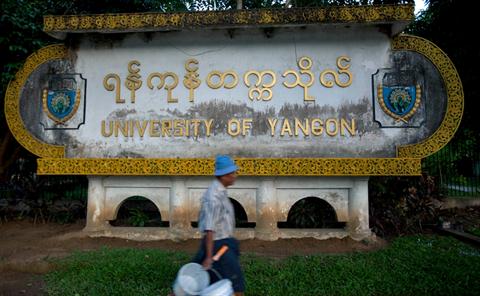
Bangkok, November 18: Myanmar local security forces killed Muslim villagers and assaulted people trying to flee a fresh outbreak of sectarian violence in western Rakhine state last month, a rights watchdog said Sunday.
Local forces killed ethnic minority Kaman Muslims in the town of Kyauk Pyu while government troops "stood by and watched", according to New York-based Human Rights Watch (HRW).
Soldiers from the local border guard force meanwhile "severely beat" dozens of displaced Rohingya Muslims arriving by boat near the Rakhine state capital Sittwe from violence-hit local villages, it said.
Elsewhere, however, security forces provided protection to displaced Rohingya and Kaman Muslims by firing shots in the air to fend off Buddhist mobs and by providing water and food, according to HRW.
Two major outbreaks of violence between Muslims and Buddhists in Rakhine since June have left 180 people dead and more than 110,000 displaced. Most of the displaced were Rohingya, a minority group that has faced decades of discrimination.
HRW released new satellite imagery which it said showed extensive destruction of homes and other property in three mainly Rohingya areas.
It reported accounts of "gruesome casualties" on both sides of the Buddhist-Muslim clashes, including beheadings and killings of women and children.
"The satellite images and eyewitness accounts reveal that local mobs, at times with official support, sought to finish the job of removing Rohingya from these areas," said Brad Adams, the watchdog's Asia director.
He urged US President Barack Obama to press Myanmar's reformist leader Thein Sein on the issue when he makes a historic visit to Yangon on Monday following sweeping political changes in the former pariah state.
"The absence of accountability for this horrific violence gives a green light to extremists to continue their attacks and abuses," Adams said.
After the initial eruption of violence in June, HRW accused security forces of opening fire on Rohingya, committing rape and standing by as rival mobs attacked each other.
Myanmar's 800,000 Rohingya are seen as illegal immigrants from neighbouring Bangladesh by the government and many Burmese. They have long been considered by the United Nations as one of the most persecuted minorities on the planet.





Comments
Add new comment